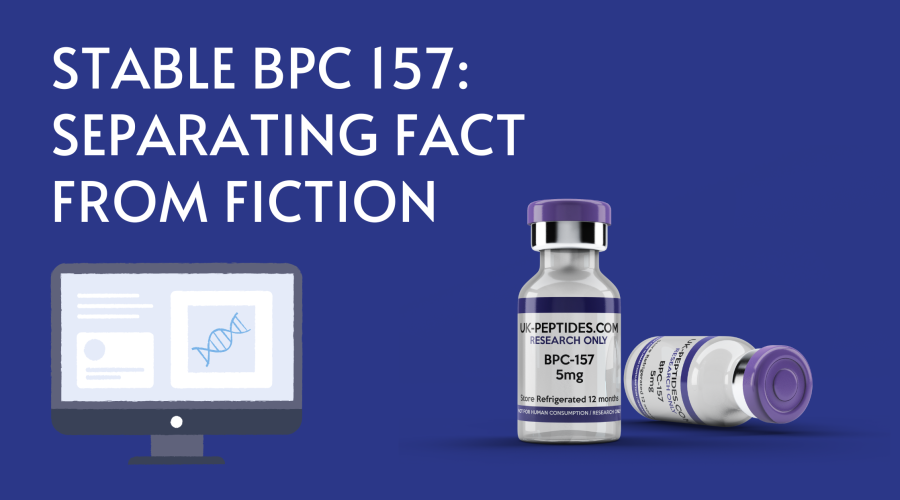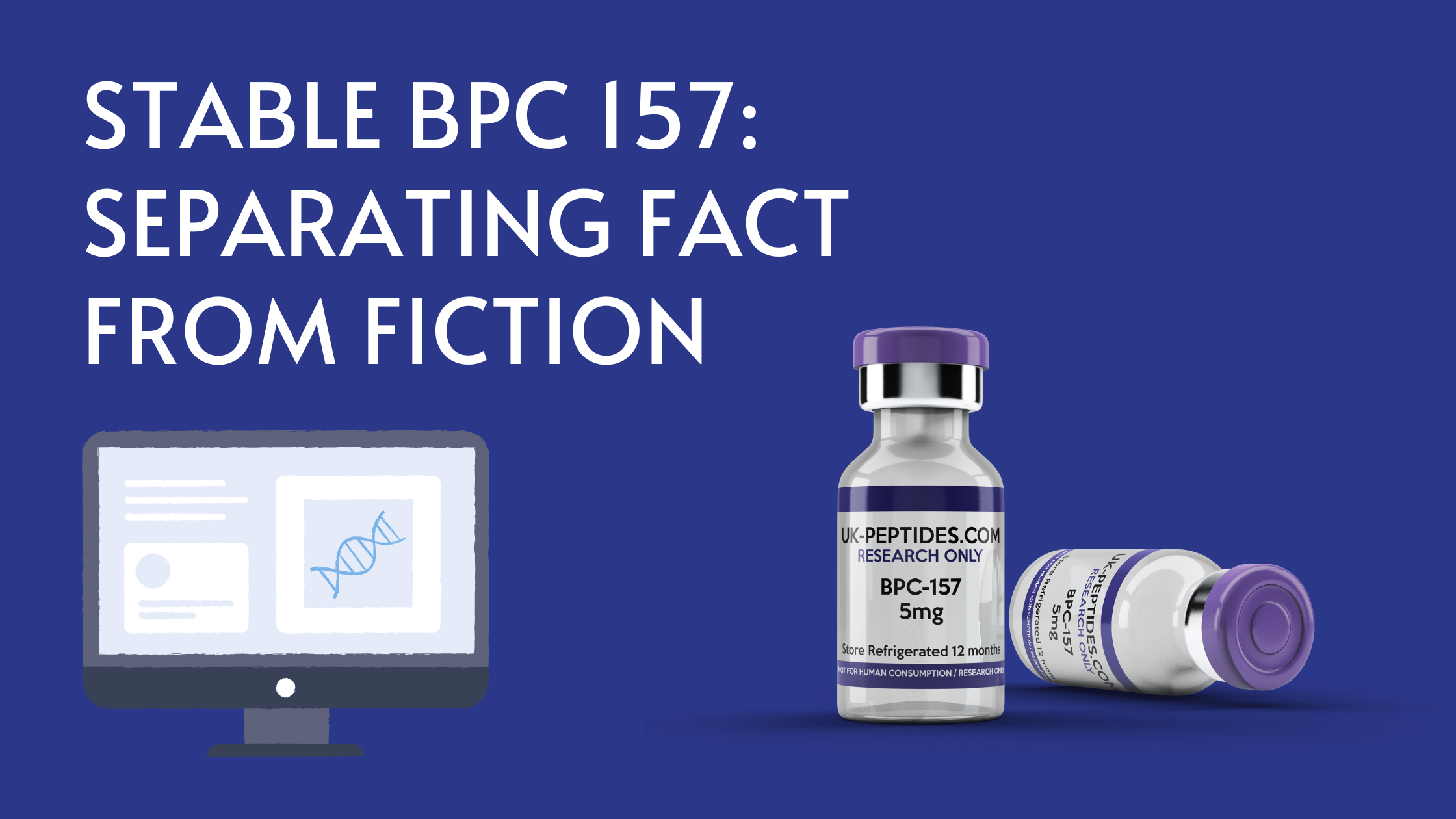Deep Dive into Stable BPC 157: Separating Fact from Fiction
Understanding Stable BPC 157
The Claims surrounding stable BPC 157 (Arginine BPC-157) is a halo of enhanced stability and efficacy. Yet, the foundation of these claims—its supposed resilience to degradation in its arginine salt form—demands a thorough examination against the backdrop of biochemical principles and empirical evidence.
The naturally occurring form of BPC-157 in our bodies, primarily acetylated and amidated, hints at an evolutionary fine-tuning for optimum stability and function. This revelation casts doubt on the marketed version's alleged superiority.
Evaluating Stability and Efficacy
The accurate measure of a peptide's usefulness, mainly when presented in capsules and kept at room temperature, lies in its stability. Research indicates that the acetylated and amidated variants of BPC-157 demonstrate markedly higher strength and resistance to enzymatic breakdown within the gastrointestinal tract, thus boosting their bioavailability and therapeutic value. In stark contrast, the marketed "Stable BPC 157" succumbs quickly to peptidase degradation in the small intestine and becomes less effective due to increased polarity when exposed to the small intestine's elevated pH levels.
The Science vs Marketing of Stable BPC 157
Marketing tactics have significantly swayed the narrative shaping Stable BPC 157, potentially eclipsing an unbiased scientific evaluation. Proponents of the arginine variant of BPC-157 touted its stability in acidic environments—a claim refuted by independent studies. Contrary to the marketing assertions, peer-reviewed research showcases that the acetylated and amidated versions of BPC-157 maintain their structural and functional integrity far better under similar conditions, challenging the baseless stability claims of the arginine variant.
The Myth of Capsule Stability at Room Temperature
In the realm of peptide supplements, the convenience of capsule form is undeniable. However, when it comes to peptides like BPC 157, which are sensitive to environmental conditions, the promise of stability in capsules stored at room temperature merits a closer look. Our research and understanding of peptide degradation mechanisms suggest that maintaining the efficacy of such peptides in capsule form without controlled storage conditions is challenging.
Claims that 'stable' forms of BPC 157 can withstand the variable environments encountered outside refrigeration or lyophilised storage settings are often overstated. The scientific community recognises that peptides, by their nature, are susceptible to degradation by heat, moisture, and light. This degradation can significantly reduce the peptide's bioavailability and therapeutic potential before it reaches the intended site of action within the body.
Therefore, while the allure of a stable, room-temperature capsule form is understandable from a convenience perspective, it is essential to evaluate these claims critically against the backdrop of peptide science. For BPC 157, whose therapeutic benefits have been documented extensively in its lyophilised form, ensuring the integrity of the peptide through proper storage and handling is paramount for research and therapeutic applications.
We advocate for transparency and diligence in presenting the stability and efficacy of peptide supplements. Consumers and researchers must demand evidence-based assurances that storage recommendations are practical and founded on robust scientific principles. By navigating the noise of marketing claims, we can make informed decisions that uphold the integrity of peptide research and its application in healing and regeneration.
Navigating Through Misconceptions
The peptide research domain is rife with marketing narratives that often obscure the line between reality and fiction. A critical assessment of the evidence is imperative. This involves a rigorous review of studies, including those with potential biases favouring the arginine variant and weighing them against independent findings. This analytical journey is vital to unveil the actual performance and stability of Stable BPC 157, steering researchers towards informed and evidence-based conclusions.
Conclusion: Advocating for an Evidence-Based Approach
Our exploration into the intricacies of Stable BPC 157 highlights the paramount importance of an evidence-based approach in peptide research. By delving deep into the biochemical underpinnings, critically assessing stability claims, and cutting through the marketing fluff, we inch closer to a genuine understanding of peptide efficacy.
Given the critical importance of stability and bioavailability for peptide therapeutic efficacy, we strongly recommend using BPC 157 in its optimal lyophilised form for research purposes. This form ensures the highest degree of stability and control, enabling precise dosing and reconstitution conditions tailored to your research's specific needs. While capsules and other forms may offer convenience, they cannot guarantee the same efficacy and reliability critical for scientific inquiry.
For those embarking on this research journey, sourcing high-quality peptides becomes a cornerstone of credible scientific inquiry. We offer BPC 157 in its optimal lyophilised form, requiring precise reconstitution for research use. Discover more about our BPC 157 here, and join us in advancing peptide science with integrity, grounded firmly on empirical evidence and transparent discussions, far removed from the noise of promotional hyperbole.


